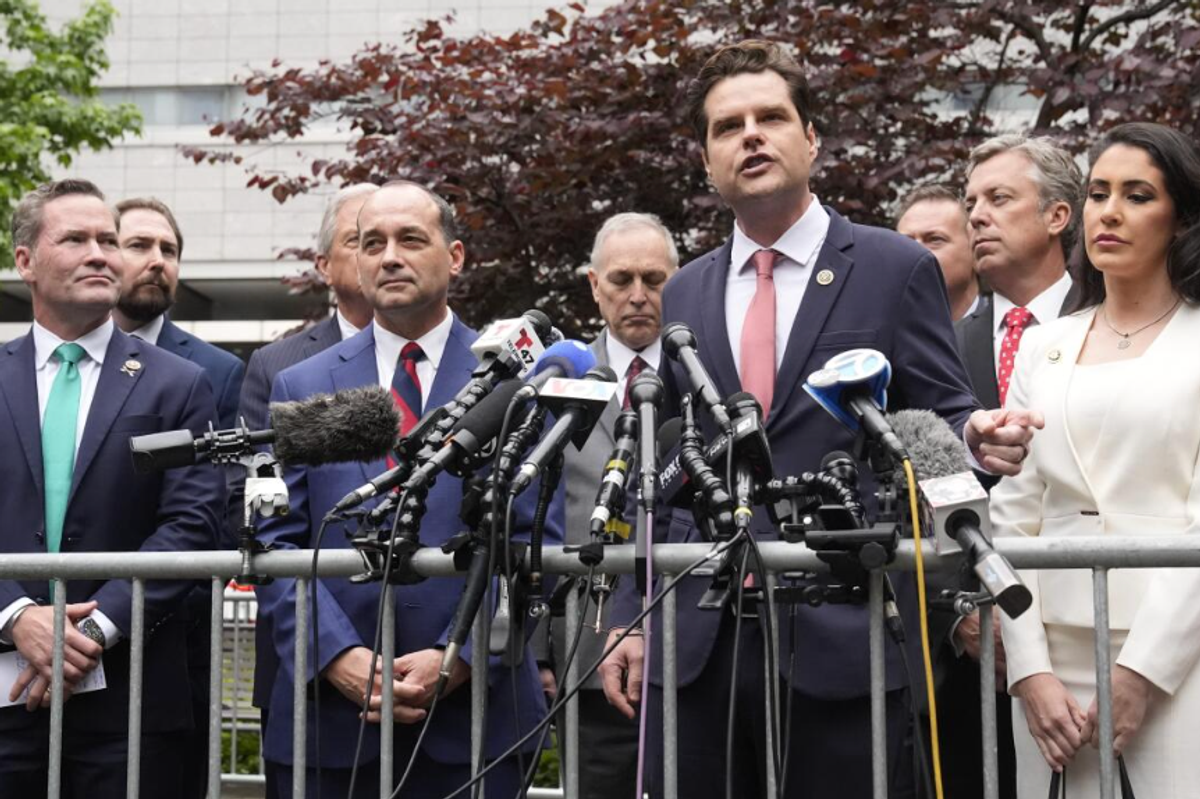How Hank Paulson Gave Hedge Funds A Heads Up During The Financial Crisis
According to a Bloomberg News report, in 2008 then-Treasury Secretary Hank Paulson told a group of hedge fund managers — at least five of whom used to work for Goldman Sachs, where Paulson had served as CEO and chairman — that he was considering “placing Fannie Mae and Freddie Mac into ‘conservatorship’ — a government seizure designed to allow the firms to continue operations despite heavy losses in the mortgage markets.” This course of action would effectively wipe out the value of the firms’ stock.
At the same time, Paulson was telling the New York Times that shareholders should maintain control of the two mortgage giants.
When Paulson’s plan came to pass — and Bloomberg’s source says that Paulson “left little doubt” that it would in his meeting with the Wall Street execs — the value of Fannie Mae and Freddie Mac’s stock plummeted. Paulson’s message during the meeting gave the fund managers present a prime opportunity which the public never enjoyed to profit from the collapse.
The incident is raising questions about who Paulson was actually working for while he served as Treasury Secretary — taxpayers, or big banks?
William Black, an associate professor of economics and law at the University of Missouri-Kansas City, told Bloomberg that Paulson was wrong to leak his plan to the fund managers.
“You just never ever do that as a government regulator — transmit nonpublic market information to market participants,” says Black, who’s a former general counsel at the Federal Home Loan Bank of San Francisco. “There were no legitimate reasons for those disclosures.”
It is unclear whether or not the Wall Street executives who met with Paulson actually profited from the information; it is not possible to track firm-specific short stock sales using public documents. In any case, Paulson’s actions seem inappropriate on their face.
Despite the serious questions raised by the meeting, securities lawyer Phillip Kaplan told Bloomberg that Paulson had no legal obligation to keep the information to himself.
“I don’t think a government person is liable,” Kaplan said. “[Paulson] didn’t profit from the information or trade on it.”
Adam Zagorin, a senior fellow at the Project on Government Oversight, has a problem with that.
“The bottom line is that senior-level people in Washington, in the name of keeping in touch with their stakeholders, are tipping their hands…You can’t prosecute them for insider trading if they didn’t trade the shares. You may not be able to even reprimand them. What the hell are the rules?”
There is no evidence that things have changed under the Obama Administration. According to a recent Wall Street Journal article by Susan Pulliam, the 2008 financial crisis has actually resulted in closer ties between government and businesses.
One example of these close ties is the story of “Operation Twist,” a $400 billion bond-buying strategy which Pulliam reports that the Royal Bank of Scotland and Goldman Sachs knew about a month before the Fed announced it. By the time the Fed had announced the strategy, “the window for quick profits had all but slammed shut.”
Pulliam speculates that the banks learned about Operation Twist through a series of meetings with top Federal Reserve officials, which have become standard practice in recent years.
Conversations are important to both sides, making it difficult for the Fed to completely close its doors to traders and analysts. Fed officials want to know how investors might respond to changes in monetary policy and to avoid surprising markets. Investors, meanwhile, reveal developments that might pose unseen dangers to the U.S. economy, say people familiar with the matter.
Such talks are perfectly legal but create a delicate dance for the Fed, which tries to sate its need for information to help guide monetary policy without giving Wall Street an unfair advantage over Main Street.
That dance becomes even more delicate when the federal government is full of former Wall Street executives like Paulson. In this case, it certainly appears that he did give Wall Street an unfair advantage. The incident ultimately raises renewed questions about the revolving door between Wall Street and the government; given that Paulson was expected to frequently meet with his former colleagues about critical economic issues, is it really so surprising that they were able to glean sensitive information from him?


